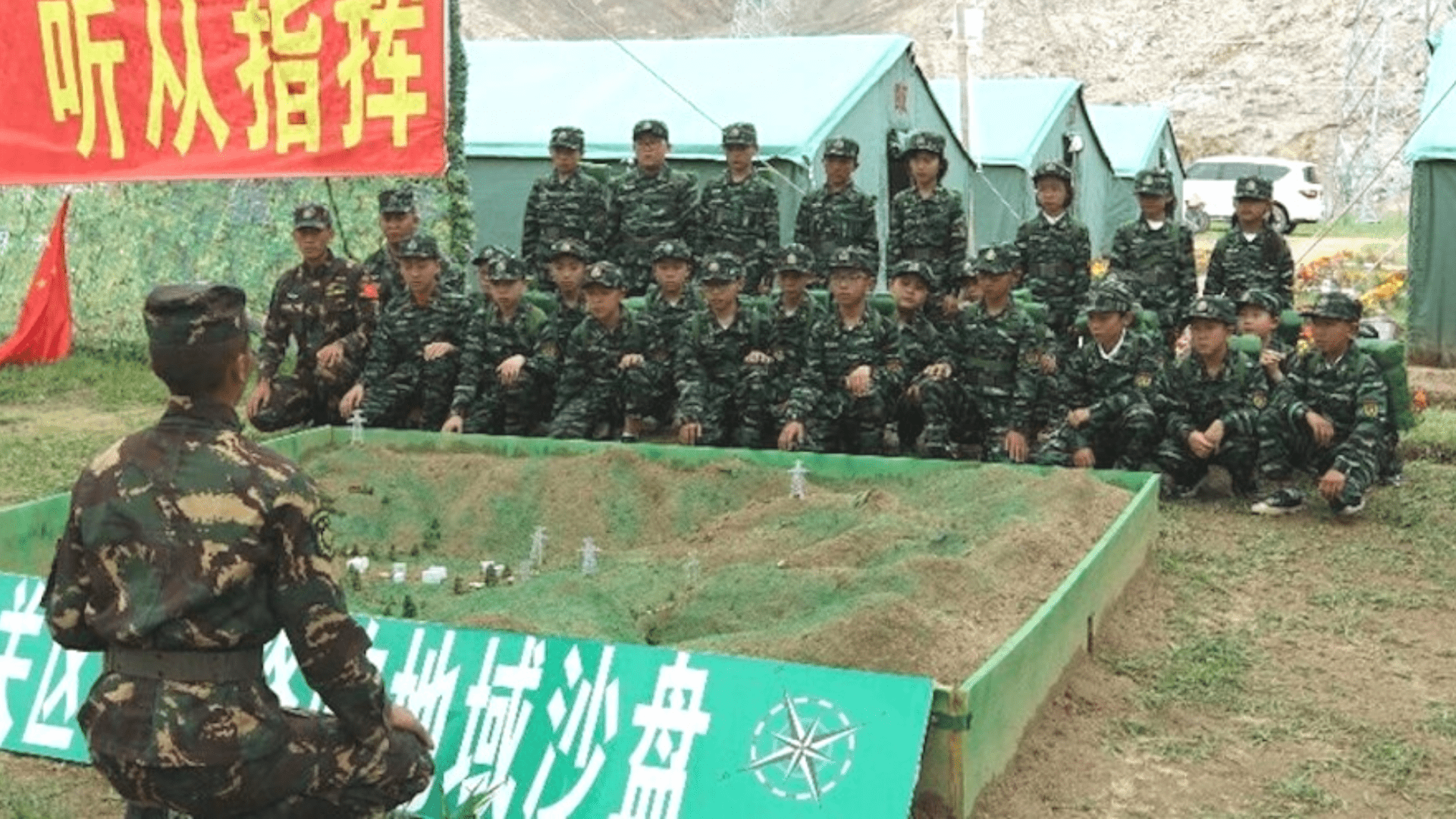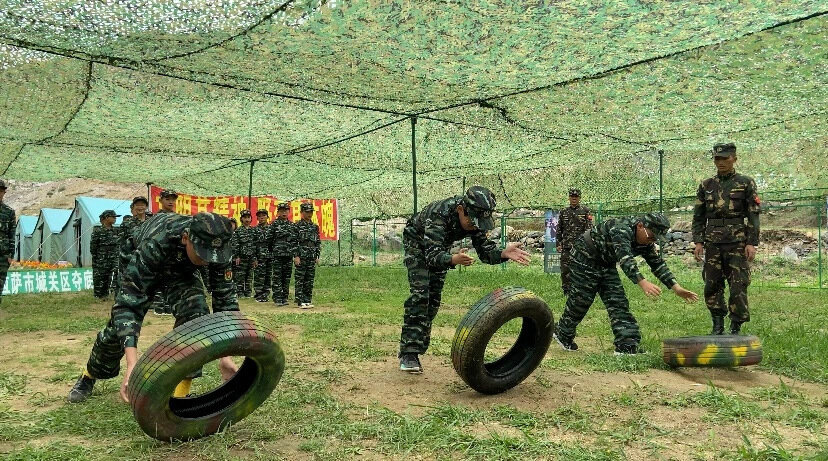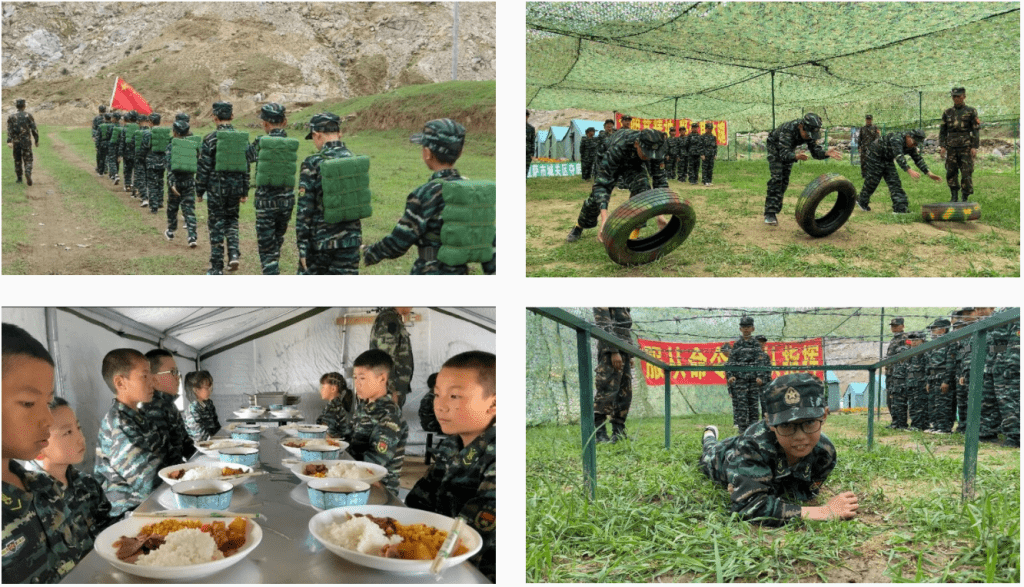
New Military Education Camps for Tibet’s Youth Constructed in Nyingtri
Targeted programmes are aimed at students aged from eight to 16
Targeted programmes are aimed at students aged from eight to 16
New targeted military camps for the younger generation of Tibetans have been established in Nyingtri, the southeastern Tibetan region across the border from Arunachal Pradesh in India. They appear to have been constructed in early 2021, according to Chinese state media reports. These military-style facilities, which provide training for Tibetan youth during school holidays, were constructed in an already heavily militarised border region.
Chinese state media reported that these centres are crucial steps in providing national defence education for Tibet’s youth to inculcate patriotism, love for China and the spirit of defending national borders. Within a short space of time, children staying at the camp are given a crash course in military discipline, including military drills and physical activities. The state media report stated that the purpose of the centre was “to increase the spirit of patriotism and defending the nation, increase physical strength, inculcate mental strength and stamina, and also to increase the spirit of unity among the children”.

Children performing drills at Young Tibetan Snow Hawk Military Summer Camp, 2021
In what appears to be the first programme to come into force in Nyingtri, Chinese state media reported on 27 July that on the banks of Lake Draksum Tso in Kongpo Gyamda County, Young Tibetan Snow Hawk Military Summer Camp completed training for a hundred students, aged between eight to 16, mainly from primary and secondary schools in Lhasa. Summer holidays for schools in Tibet run generally from June to July every year.
Another official report covered the establishment of the national defence training centre, known as Tibet Rong He Military Training Centre. The same report said the centre’s sole aim is “…providing education that will nurture disciplined and obedient children with strong physical strength since they are the hope and future of the nation. Their education is closely connected with the nation and will determine the fate of the nation.”
Yao Chi, Director of the Competitive Sports Division of the Sports Bureau of the Tibet Autonomous Region, was reported as hoping that “through this military summer camp, the majority of campers can cultivate good behaviors, learn self-discipline and independence, enhance self-confidence, sharpen their tenacious will in the face of challenges, learn to unite and cooperate, and harvest growth and happiness.”

More photos from Tibet Rong He Military Training Centre
The report states that Tibet Rong He Military Training Centre implements the programs under the guidance of eighteen staff members. Tibet Watch is investigating the possibility that many more similar summer and winter military education camps are being constructed across Tibet.
The emergence of these centres follows the proliferation of vocational skills training institutes and enterprises in Nyingtri in recent years that are aimed at Tibetan farmers and nomads, as well as former political prisoners. The work of these institutes in transferring Tibetans from their lands has seen an accelerated change to Tibetan society, which has historically and traditionally been defined by farming and pastoralism. This process has also left Tibet’s younger generation in the hands of institutionalised programs of the Chinese Communist Party.
Since the 2008 Tibetan Uprising, the Chinese Communist Party (CCP) has invested heavily in using big data and artificial intelligence technology to boost surveillance and revamped its assimilatory ethnic policies to “break connections, lineages, lifestyle and loyalties’’. There is a growing consensus amongst Tibetan teachers from Tibet who express their deep anxiety about the denial of mother-tongue education and evisceration of Tibetan language and identity. Private schools providing an education grounded in Tibetan culture are discouraged and forcefully closed without official clarifications while monasteries and Buddhist institutes – Tibet’s traditional centres of education – have seen their monastic curricula and management placed under CCP control.

